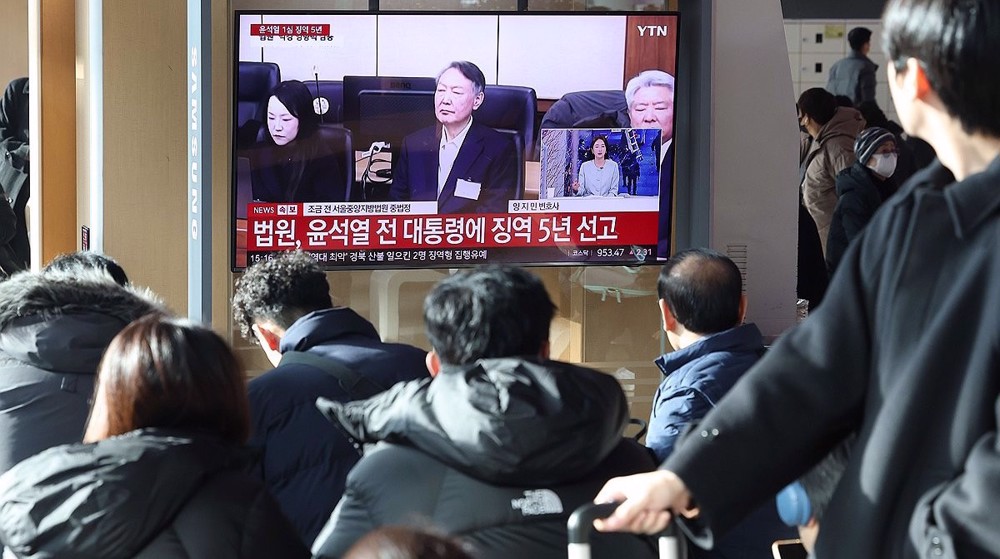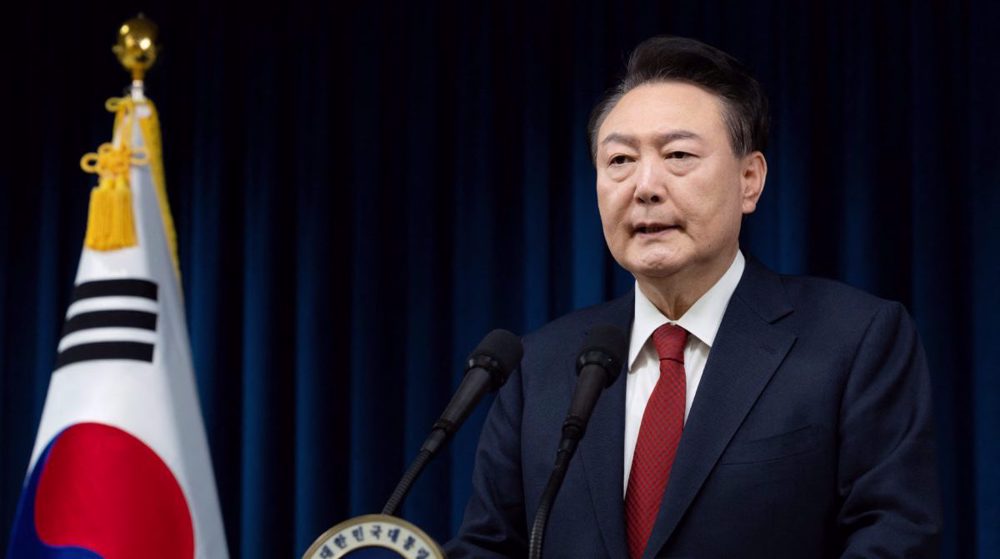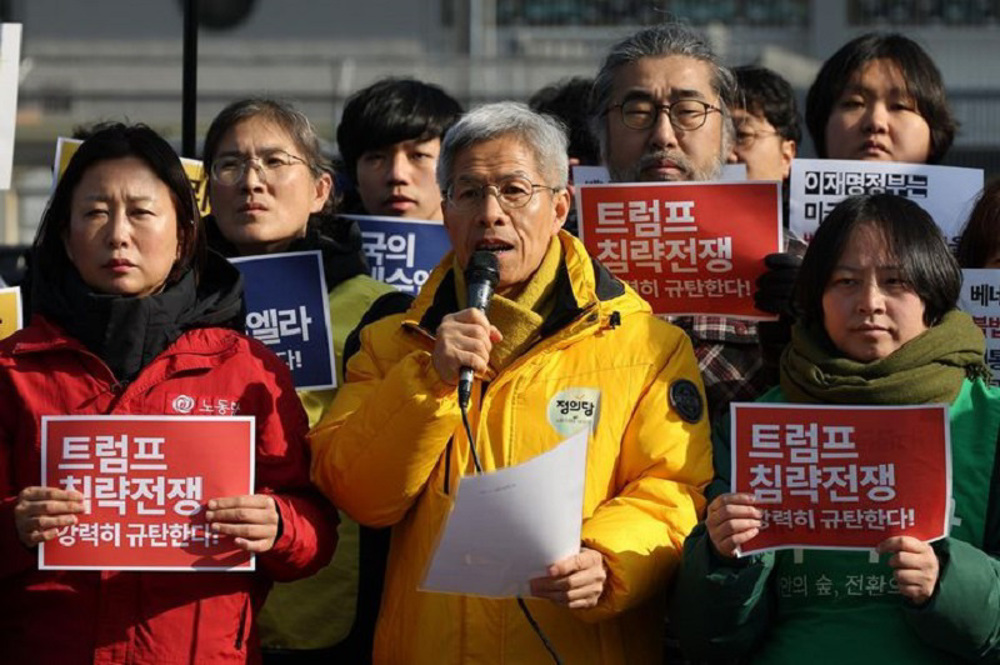North Korea accuses US of 'evil ambition' in talks
North Korea has accused the United States of showing bad faith in negotiations by conducting nuclear and missile tests as well as military drills on the Korean Peninsula.
In a statement issued by the North Korean Foreign Ministry on Wednesday, Pyongyang also slammed the continuation of US sanctions and warned that “use of strength is not at all a monopoly of the United States.”
According to the statement, Washington conducted a subcritical nuclear test on February 13, just days before a second summit between US President Donald Trump and North Korean leader Kim Jong-un.
“The US has thus showcased its ulterior intention that it seeks a strength-based solution of the issues, though outwardly it advocates for dialogue,” the statement said.
It also criticized Washington for its joint military drills with South Korea and test launches of intercontinental and submarine-launched ballistic missiles.
“All the above clearly shows that the June 12 ... Joint Statement is not within the consideration of the United States and there is no change at all in the American evil ambition to conquer [North Korea] by force," the Foreign Ministry statement added, referring to Trump and Kim's first summit in Singapore in June last year.
“The US should better bear in mind that its hostile acts will only bring about the result of adding tension to the already unstable Korean Peninsula and inviting adverse current,” it stressed.
The statement comes after Pyongyang announced on Friday that it is halting its negotiations with the US over its nuclear and missile programs until Washington changes its zero-sum approach toward Pyongyang.
The second and the last round of talks between the two countries, which was held in Vietnam’s capital Hanoi in February, failed after Trump walked away from the summit, claiming that Kim had insisted on the removal of all sanctions on North Korea in return for its denuclearization. Pyongyang rejected that account, stressing that it had only asked for a partial lifting of the bans.
Washington has imposed rounds of unilateral sanctions and spearheaded multilateral ones against Pyongyang since 2006 over its nuclear and missile programs. The bans have mostly targeted Pyongyang’s exports, including coal, iron, lead, textiles, and seafood, while also hindering the imports of crude oil and refined petroleum products.
Soon after the diplomatic engagement with the South, North Korea took a number of unilateral goodwill measures, including suspending all nuclear and missile testing.
None of those measures were reciprocated by America.
EU Parliament halts US trade deal after Trump tariff threat
VIDEO | An unchecked presidency
VIDEO | Deportations strain Afghanistan’s fragile economy
‘Full-scale atrocity’: Iran security body reports 2,427 martyrs in US-Israeli-led riots
Smallest coffins are the heaviest: The three youngest victims of foreign-backed riots in Iran
Hamas warns of ‘systematic Israeli violations’ as Gaza ceasefire teeters
Israeli strikes kill 11 across Gaza, including children and journalists: Palestinian medics
US forces transferring Daesh prisoners from Syria to Iraq: CENTCOM












 This makes it easy to access the Press TV website
This makes it easy to access the Press TV website